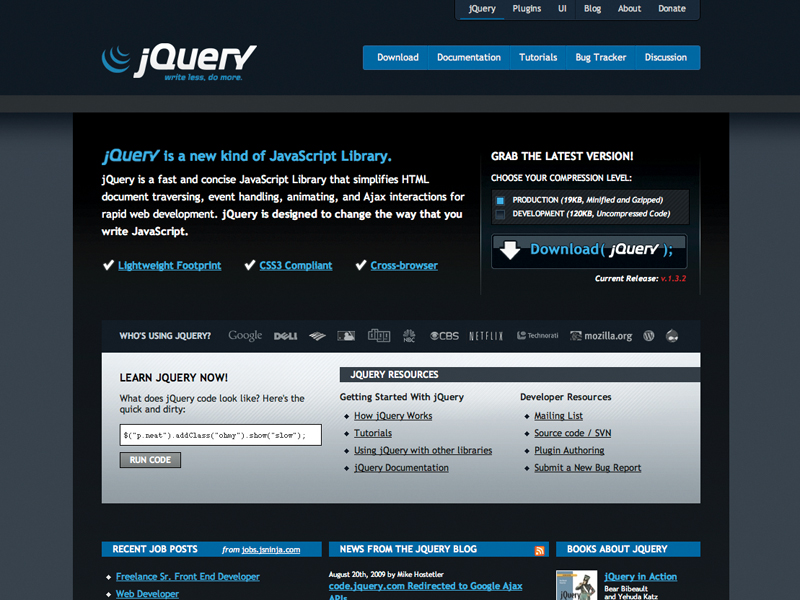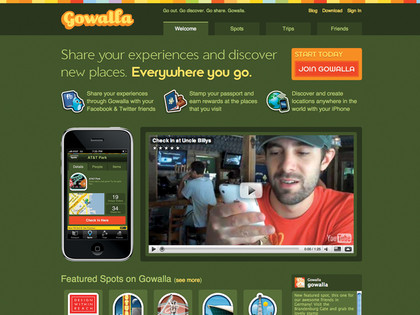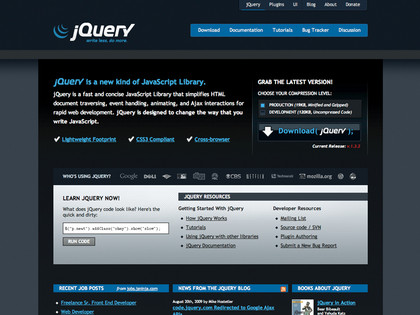Key trends for the next 12 months in web design

We enter 2010 in turbulent times. The worst of the economic crisis is over, but recovery will be fragile. To an extent, the industry has weathered the storm, enabling clients to take advantage of the web's efficiency and modularity, and this will continue in 2010 – if agencies and designers pitch accordingly.
"I see budgets at the lower end of the market remaining tight," says Andy Budd, MD of Clearleft. "Marketing microsites and vanity games projects will be scaled back, and larger clients will focus on the effectiveness of their spend."
He reckons that although large companies might capitalise on the upturn and invest in full redesigns of their sites, most will explore improving core usability, in a bid to increase conversions and customer retention. Consolidation will affect the industry in various ways.
Dan Mall, senior designer at Big Spaceship, sees the web becoming a "more critical part of advertising and content delivery," with companies shifting from considering the internet secondary to traditional media to "using it as the primary source for spreading a message".
Although that could mean more work for designers, Happy Cog founder Jeffrey Zeldman says it won't lead to a resurgence of mega-agencies:
"As in advertising's creative revolution of the 1960s, we'll see smaller teams doing more via real, creative collaboration – no more sliding wireframes under the designer's door or mailing comps to the code guy. Designers will have to take a more holistic approach – be content-aware, and user- and usability- focused."
He predicts many designers frustrated by regimented workflow will be liberated in 2010, enjoying their work more, and that a "publication-and application-savvy generation of web designers will enrich and deepen the medium. The emerging web needs our insight and creativity, not just our skills."
Sign up for breaking news, reviews, opinion, top tech deals, and more.
Functionality
Sandi Wassmer, MD of Copious hopes the evolving industry will lead to designers asking more often whether something is needed: "I hope designers will take a greater interest in what functionality does in terms of end-user experience, and inform a client they don't need all the latest gadgets and gizmos," she says.
Wassmer predicts that with mobile's increasing importance, "designers will simplify and streamline websites for mobile platforms, resulting in sites with greater usability and apps that give users greater control over their personal experience online."
Additionally, sites should become more purposeful, increasingly restricting self-hosted content to the strictly relevant and utilising third-party services where necessary. "You visit YouTube to see videos, but wouldn't go to a corporate site to see a chairman's conference speech," she says. "You'd expect a company to have a YouTube channel, rather than their site taking forever to download due to large A/V files."
Visual trends
How much impact a depressed market will have on the visual appearance of sites in 2010 remains to be seen, but a trend of enabling people to rapidly access information should persevere. "We'll see the continued rise of the grid system, influenced strongly by print," predicts TweetDeck UX & UI architect James Whittaker.
"Big, bold typefaces will form the centrepiece of many designs, although I hope there'll be a move away from Web 2.0 clichés and a fresher approach, with plenty of white space to enhance visuals." Many predict that colour will make a return, partly to cheer people up, partly because of the influence of retro designs.

Budd suggests that sites like that of the travel game gowalla.com will become more common: "That site signalled a renewed trend towards bright, simple, colourful interfaces," he says. "I suspect this has much to do with an emerging iPhone app style. In fact, many sites will take their design and user experience lead from their mobile apps, rather than the other way round."
Brendan Dawes of magneticNorth reckons mobile will affect desktop designs in other ways, too: "Gesture based interactions will become more prevalent, opening up a world of possibilities," he says, noting the popularity of feature-rich trackpads and multitouch devices such as Wacom's Bamboo.
Interaction
Paul Dawson of EMC Consulting reckons that interfaces in general will become simplified and easier for people to use. "2010 will see a move away from meaningless visual animation and towards beautiful interaction styles that look great and add something to the ease and pleasure of using a site," he predicts.
However, he worries that any trend towards richer interfaces might see a marked return of Flash-only sites: "They've steadily crept back in over the past two years, as clients and agencies push towards animated interfaces, but lack the skills to realise them in a cross-browser, accessible manner."
Yet it was heartening to note that of those we spoke to, few believed Flash would be a major concern in 2010, and those interested in the technology were primarily excited about Flash CS5 in relation to deploying iPhone apps.
Instead, JavaScript increasingly catches the imagination. "JavaScript libraries will be utilised more and more," says Mall, although he warns that the technology will experience growing pains, in the manner Flash had to deal with in the early 2000s:
"How does a developer intelligently handle a method that breaks the full-page reload method? What happens when the amount of code in a page makes it slow? Will we require JavaScript preloaders? When the dust settles, there'll be a clear distinction regarding the roles of JavaScript and Flash, but it'll be quite a journey to get there."

These concerns are shared by JavaScript advocate and An Event Apart co-founder Eric Meyer, who thinks 2010 will find designers having to dedicate more time and thought to using JavaScript in ways that make the web better for everyone, not worse: "It'll occupy a minority of their attention, but that minority is growing. And there'll be the incessant need to ask if a site works without JavaScript, if the content is where Google can find it, and if the disabled can navigate it."